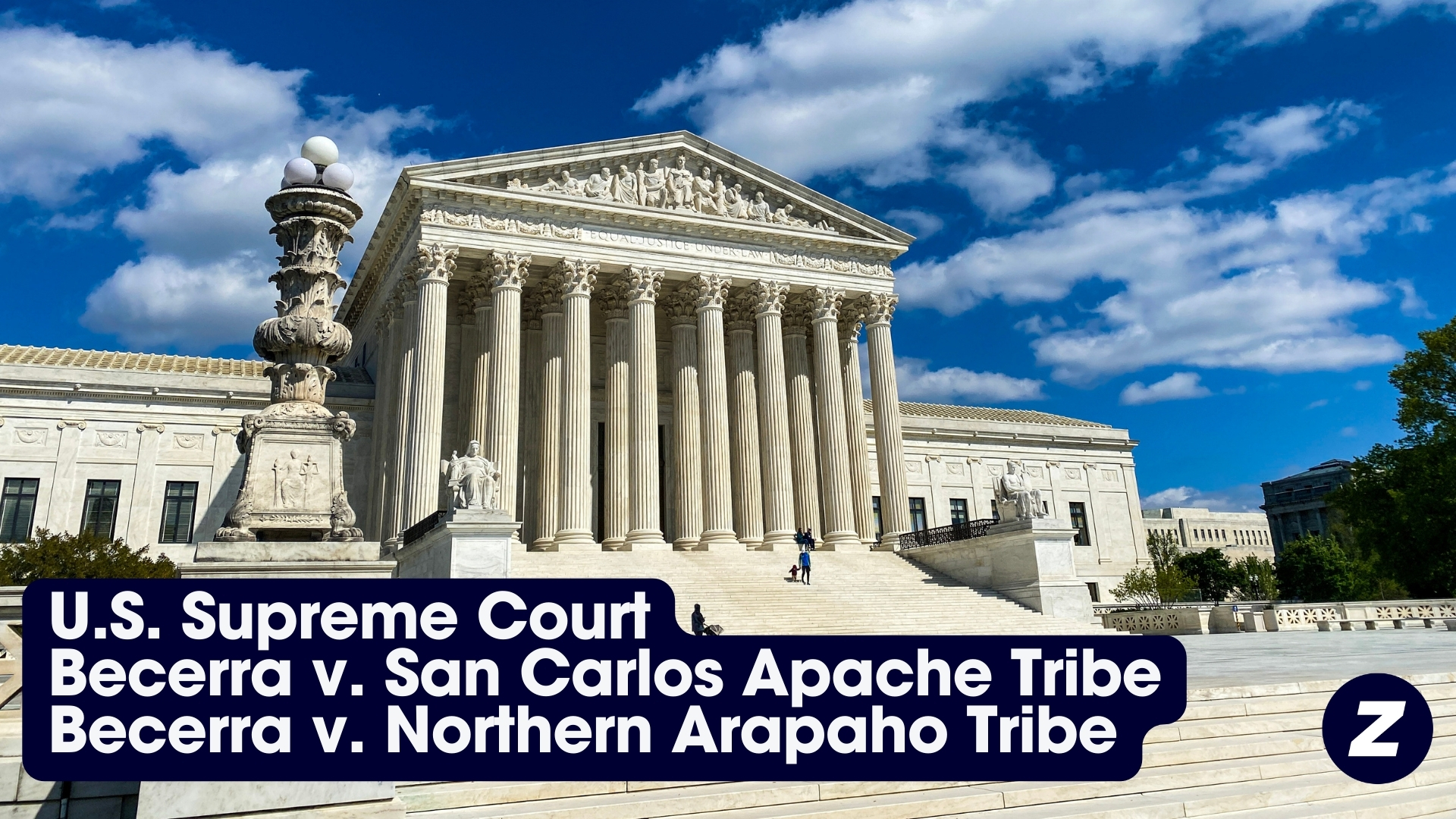AUDIO: Becerra v. San Carlos Apache Tribe / Becerra v. Northern Arapaho Tribe
Posted: Monday, March 25, 2024
Filed Under
Tags
The U.S. Supreme Court hears arguments in Becerra v. San Carlos Apache Tribe and Becerra v. Northern Arapaho Tribe on March 25, 2024.
At issue are self-determination contracts entered into between tribes and the Indian Health Service (IHS). The outcome will further clarify the meaning of “contract support costs” as part of a long-running string of cases heard by the high court in the last 20 years.
The San Carlos Apache Tribe, headquartered in Arizona, and the Northern Arapaho Tribe, headquartered in Wyoming, both won their cases at the circuit court level. The decisions from the 9th Circuit Court of Appeals and from the 10th Circuit Court of Appeals, respectively, would allow the tribes to be paid by the IHS for contract support costs incurred by billing third-party insurers, such as Medicare, Medicaid and private companies.
The administration of President Joe Biden, a Democrat, subsequently appealed both tribal victories. The cases are named for Xavier Becerra, the Secretary of the Department of Health and Human Services, the parent agency of the IHS.
Arguments lasted about an hour and 26 minutes. The justices first heard from Caroline A. Flynn of the Department of Justice, representing the U.S. government. Her presentation ran for about 34 minutes.
Next was Adam G. Unikowsky, representing the Northern Arapaho Tribe. His presentation lasted about 28 minutes.
The Supreme Court then heard from Lloyd B. Miller, representing the San Carlos Apache Tribe. His argument lasted about 17 minutes.
Finally, Flynn presented a rebuttal on behalf of the U.S. government for another five minutes.
The cases have been consolidated by the Supreme Court. A decision is expected by the end of June.
